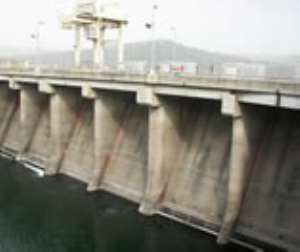
Thirty waterfalls in the country have been identified as having the potential to generate enough hydro-electricity to meet Ghana's rural needs for electricity.
The waterfalls are also said to have huge eco-tourism potential if connected with tourism infrastructure such as access roads and lodging facilities.
Dr Mamaa Entsua-Mensah, a Principal Research Scientist of the Water Research Institute, made the declaration at an exhibition and lecture organised by the Water Resources Commission (WRC) in Accra on Tuesday as part of its 10th anniversary.
She described as breathtaking Tsiridi Waterfall in the Brong Ahafo Region and said it had great potential for rural electrification, as well as ecotourism.
She said 26 out of the 30 waterfalls had been mapped out for development as tourism destinations while four of them were still in the wild and inaccessible because of the absence of road networks to the sites.
She stressed the need for a review of water resource management in the country on the basis of climate change which already had hit the country.
Dr Entsua-Mensah who spoke on the topic "Options for Effective Utilisation of Water Resources-The Way Forward", said the belief that water was infinite was dramatically changing in the face of severe water shortages in the country both for industrial and domestic purposes.
She said Ghana had been experiencing climate change with rainfall gradually reducing over the past 30 years with the country recording one degree centigrade in climate change over the same period.
She said because the demand for water was outstripping the extraction and supply of water, 70,000 hectares of forest in the country was lost annually to deforestation.
She observed that the scheme that compelled timber contractors to plant trees to replace the destroyed ones was not working as there was no mechanism to monitor their land reclamation projects.
Dr Entsua-Mensah said water bodies such as lakes, rivers and lagoons had far-reaching consequences for the climate and environment of a place and ought to be protected.
Nii Boi Ayibotele, a research fellow who delivered a paper on: "Water Resources Management; the Past, the Present and the Future", commended the WRC for coming out with a code of conduct for water resource sharing with Burkina Faso, Cote d'Ivoire and Mali.
He said the Volta River Basin Board, which comprises Ghana, Burkina Faso and Mali, had helped to minimise conflicts in the management of water resources with Ghana's neighbours.
He said although Ghana was endowed with water resources if care was not taken, the country could face water crisis by 2015 because of climate change all over the world.
Nii Ayibotele said high flushing water closets that utilised three to five gallons of water at each flushing could be replaced by 1.4 gallon-water closets as a first step towards water conservation in the country.
He said the government could also introduce tax incentives for industries and domestic water conservation schemes such as rain harvesting.
Nii Ayibotele urged the government to assist the WRC to enforce the law that empowered it to provide licence before the damming of rivers in the country for hydro-electric projects.




 This IMANI job no dey pap; the people you are fighting for are always fighting y...
This IMANI job no dey pap; the people you are fighting for are always fighting y...
 Prof. Naana Opoku-Agyemang has changed; you can see a certain sense of urgency –...
Prof. Naana Opoku-Agyemang has changed; you can see a certain sense of urgency –...
 MFWA Executive Director slams Akoma FM for engaging in ‘irresponsible’ media pra...
MFWA Executive Director slams Akoma FM for engaging in ‘irresponsible’ media pra...
 ‘Women must become millionaires too’ — Prof Jane Naana on establishment of Women...
‘Women must become millionaires too’ — Prof Jane Naana on establishment of Women...
 Some believe only in Ghanaian votes, not Ghana — Kofi Asare jabs politicians
Some believe only in Ghanaian votes, not Ghana — Kofi Asare jabs politicians
 Plan to make BEST sole aggregator of Sentuo Oil Refinery will create market chal...
Plan to make BEST sole aggregator of Sentuo Oil Refinery will create market chal...
 2024 elections: I can't have the man I removed from office as my successor — Aku...
2024 elections: I can't have the man I removed from office as my successor — Aku...
 2024 Elections: Immediate-past NPP Germany Branch Chairman garners massive votes...
2024 Elections: Immediate-past NPP Germany Branch Chairman garners massive votes...
 Gov’t focused on making Ghana energy self-sufficient, eco-friendly – Akufo-Addo
Gov’t focused on making Ghana energy self-sufficient, eco-friendly – Akufo-Addo
 April 25: Cedi sells at GHS13.74 to $1, GHS13.14 on BoG interbank
April 25: Cedi sells at GHS13.74 to $1, GHS13.14 on BoG interbank
